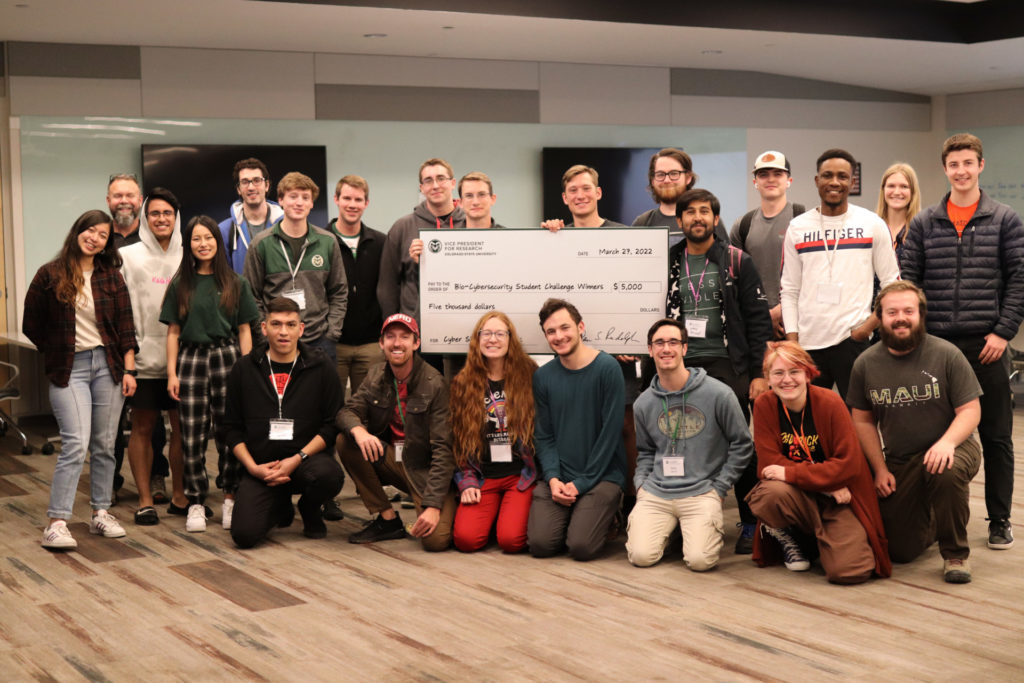
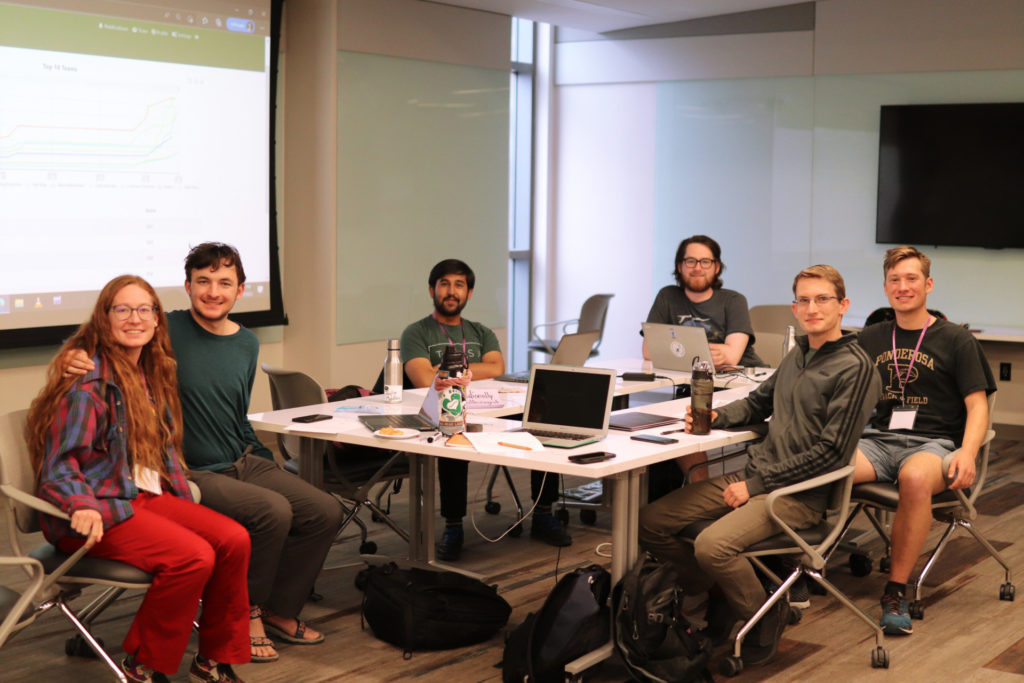
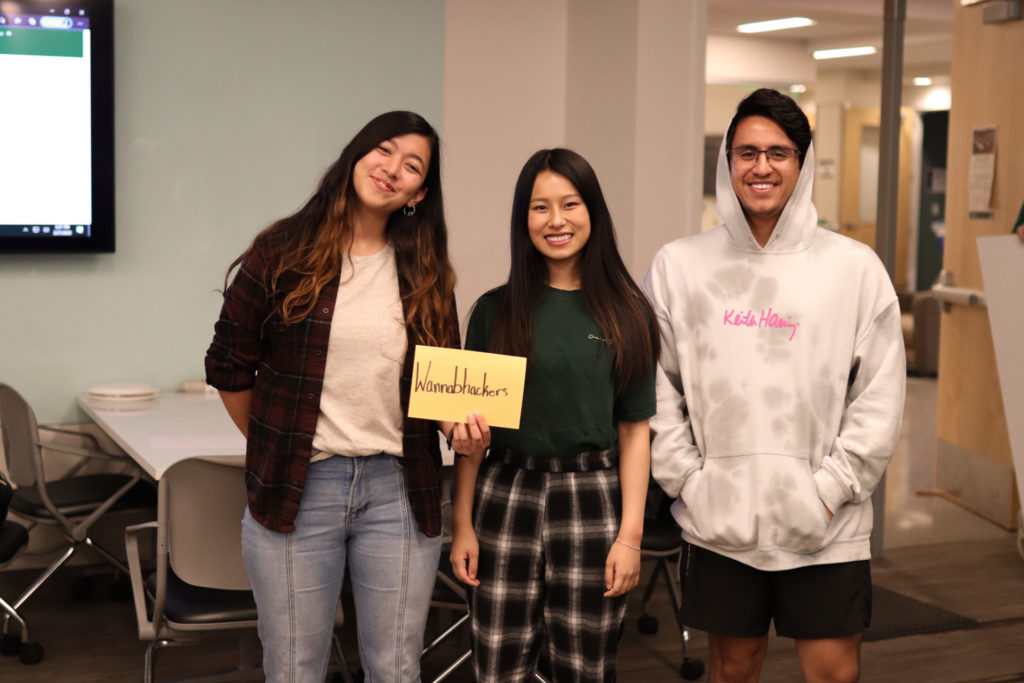
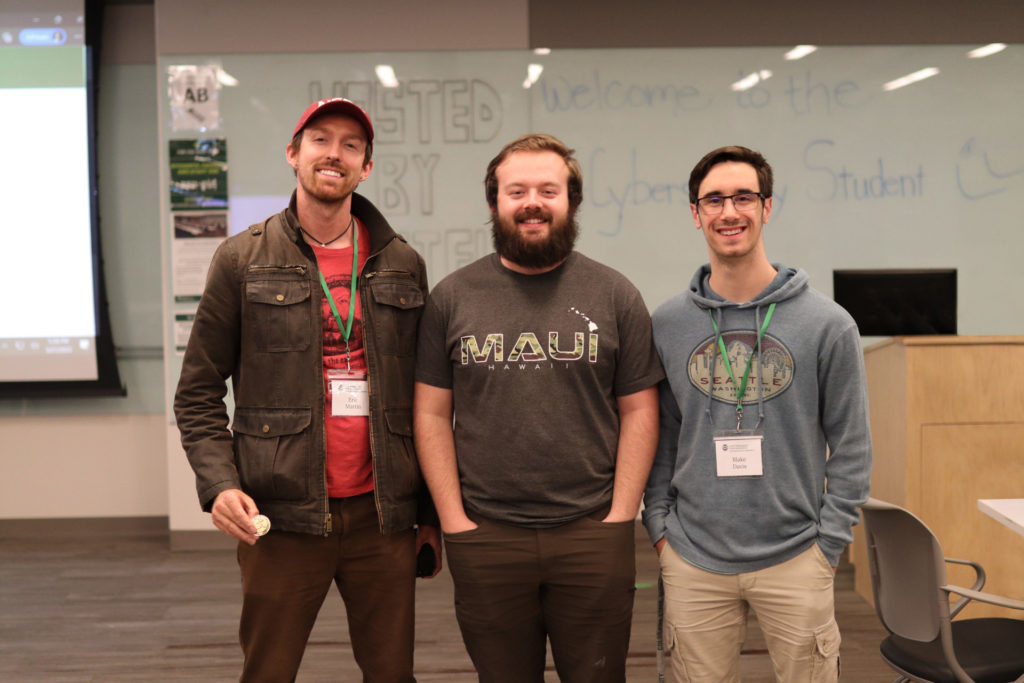
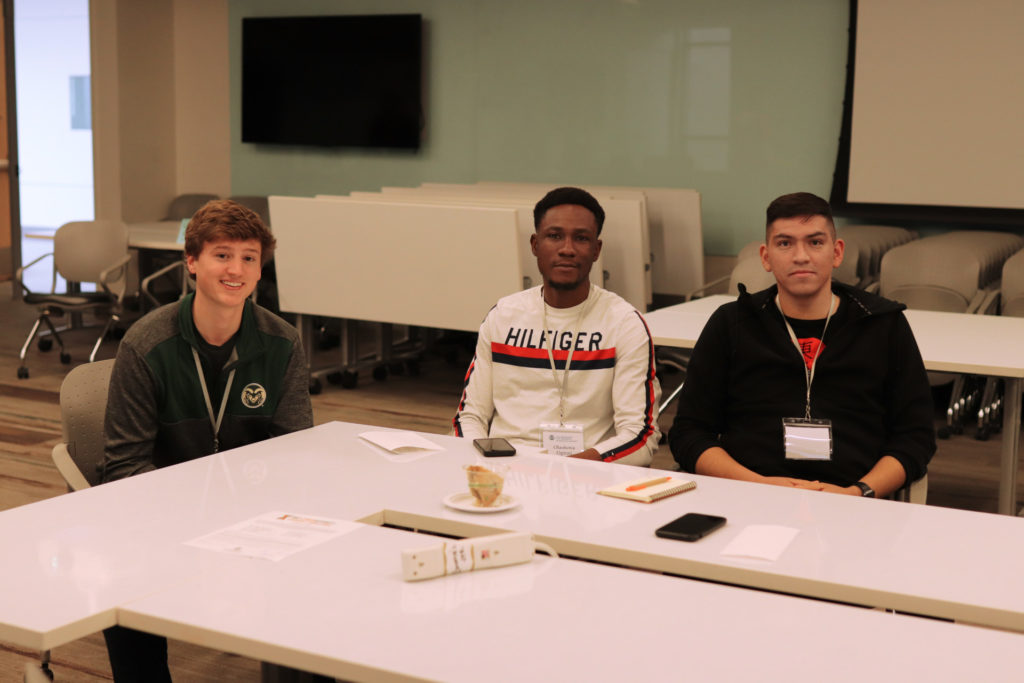
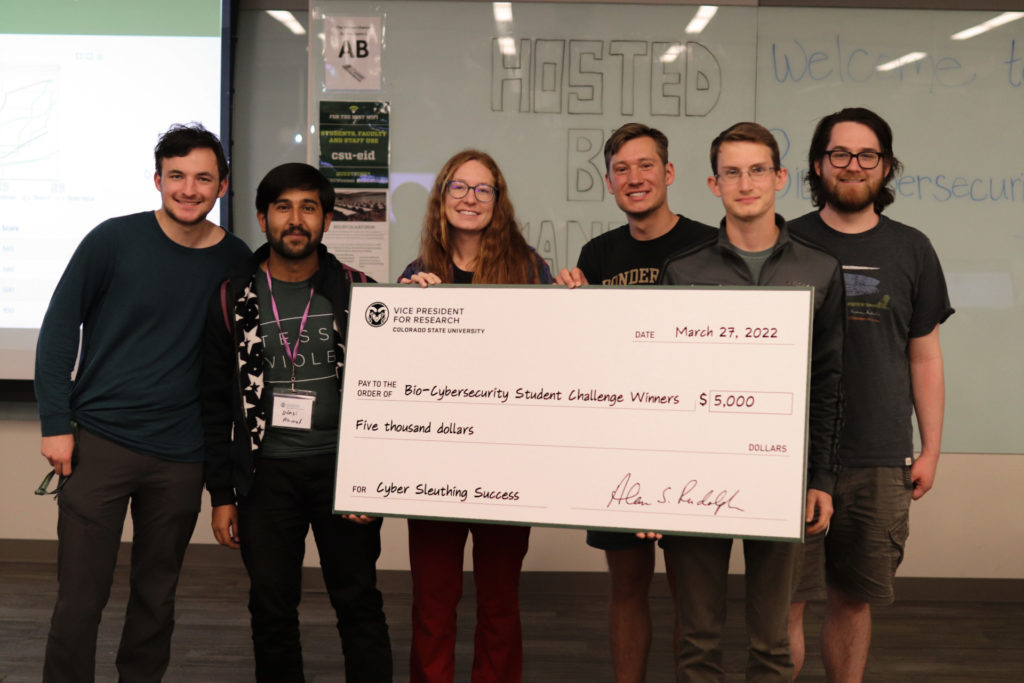
Photos by Emma Mannino
After a two-year hiatus due to the pandemic, 36 Colorado State University students completed the Bio-Cybersecurity Student Challenge March 26-27, learning interdisciplinary problem-solving skills to prepare for real-world jobs.
“Competing in an event like this is something I have not done in a very long time,” said Jaylin Mandley, a senior studying neuroscience and member of the winning team, Gravitationally Challenged. “It’s very refreshing to be back to an in-person event. I’ve really enjoyed it.”
Students majoring in computer science, engineering and life sciences overcame a series of capture-the-flag challenges to score points. For example, students sought solutions by finding answers in a series of computer codes or creating DNA sequences.
“The challenge is something new and eye-opening. We had to use like six different pieces of software that we’ve never used before. My team is currently in a cybersecurity class and so it’s interesting to be able to put these skills that we’re learning to use,” said Tyson O’Leary, a sophomore studying computer science and a member of the third-place team, Exploiting Enzymes.
CSU last held the event in 2019. This challenge was sponsored by the Office of the Vice President for Research and hosted by Mantel Technologies Inc. Support comes from the Anschutz Family Foundation.
Bio-cybersecurity is a modern problem that needs modern solutions. Solving problems in this space requires a skill set derived from a mix of disciplines to create cybersecurity protection against potential hackers bent on interfering with bio-manufacturing applications such as synthetic fiber production and medicine manufacturing.
The National Academy of Sciences values the bioeconomy at about 5% of U.S. GDP and $950 billion, which makes it a ripe opportunity for college students seeking jobs. Recruiters from HP Inc. and Rule4 Inc. attended the event.
Ken Reardon, professor and associate dean for research at the Walter Scott, Jr. College of Engineering, said CSU is one of only two universities in the United States that offer bio-cybersecurity courses. He said CSU seeks to add certificates and courses to prepare students for jobs.
“There is recognition that bio-cybersecurity is important for the growing biotechnology industry. Involving students is vital so they can be part of finding solutions to bio-cybersecurity problems, whether as researchers or as cybersecurity specialists at companies. This student challenge event and our other programs in bio-cybersecurity are important contributions of the University,” Reardon said.
In the end, nine teams persisted to the finish on Sunday. The contestants will split $5,000 in cash prizes.
In a close contest, team Gravitationally Challenged won with 565 points. Team members included: Sean Kouma, Wasi Ahmed, Ben Norby, Malachy Swonger, Jaylin Mandley and Nick Heyer. For details, visit the bio-cybersecurity student challenge website at research.colostate.edu/bio-cybersecurity/student-events.